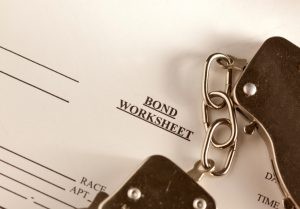When you experience firsthand the devastating impact that being jailed can have on a loved one, it’s essential to get your loved one out of jail as quickly as possible. That’s where a cosigner comes in. An attorney in the state of California can use a cosigner to assist his or her client in getting out of jail, possibly even more quickly.
When someone is in jail, he or she must post bail in order to be released from custody. A bail bondsman can be paid a fee to post bail on behalf of the defendant, but if the defendant doesn’t have any money to bail out or can’t make bail, the judge may order him or her to remain in jail until his or her trial date.
That’s where a cosigner can help.
A cosigner is someone who agrees to be liable for the debt if the defendant fails to pay it, basically as a “back up.” A cosigner is required to provide collateral to cover any expenses that may result if the debt is not paid. Cosigners may also be asked to provide their Social Security numbers before they may sign up for a cosigner agreement and required to provide a financial statement to support that he or she has money readily available to repay the loan. He or she must provide proof that he or she has a steady job and a steady income.
Bail bond co signer requirements
They differ from state to state, but in California, a security of 10 percent or more of the amount of the bond is required. The cosigner must also sign a statement saying that he or she will appear in court if the defendant does not pay the loan.
Cosigning a bail bond is a deeply personal decision, one that should not be taken lightly. If the defendant doesn’t appear in court, the cosigner is financially liable for the entire amount of the bail bond, including fees and other costs. A cosigner is someone who feels that he or she is able to stand by his or her commitment to the defendant while he or she is in jail or awaiting trial.
If the cosigner doesn’t want to take the risk of financially supporting the defendant, he or she should not cosign.
Requirements
- Vary from state to state, but in California, cosigners must be at least 18 years of age.
- Cosigners may be asked to provide their Social Security numbers before they may sign up for a cosigner agreement and required to provide a financial statement to support that he or she has money readily available to repay the loan. They must also provide proof that he or she has a steady job and a steady income.
- Cosigners are required to provide security in the amount of the bail, which is 10 percent of the amount of the bond.
- Before agreeing to become a co-signer, individuals should make sure that they are capable of paying the debt should the accused fail to do so. They should also remember that they are putting themselves at risk if the accused doesn’t show up for court, as the bond can be forfeited to the bondsman as a result.
- If the bond is forfeited, the cosigner may be sued by the county for the amount owed on the bond as well as additional penalties.
- They may also be asked to provide their Social Security numbers before they may sign up for a cosigner agreement
- Provide a financial statement to support that he or she has money readily available to repay the loan.
- They are also required to sign an agreement stating that they will appear in court if the defendant does not pay the loan.
Bail bond without cosigner
It can be done, but not easily. The bonding company will require more documentation and a security deposit. In order to release a person from jail without a co-signer, the person in question will need to meet the following criteria:
- Be employed
- Be a citizen of the United States
- Have no outstanding warrants
- Be a resident of California
- The person must be able to provide proof to the court that they are working and have steady income
- If the person cannot provide this information, it may be necessary to hire a bail bondsman. A bail bondsman will be able to assist you by helping you walk through the process of getting someone out of jail.
- A bondsman will require a fee to provide the service. The fee can be anywhere between 10 and 15 percent of the total bond amount. The fee can vary based on many factors.
Can a cosigner be removed from a bail bond?
No, a cosigner cannot be removed from a bail bond. Once the cosigner signs on the bond, they are legally obligated to pay the bond and the full amount of the bond amount if the defendant does not appear in court.
“A bail bond is a promise by a bondsman to secure the appearance of a defendant in court. The bail bond guarantees the bail bond agent that the defendant will appear at all court mandated appearances and surrenders the defendant to the authorities when the bail bond is due.”
Can a co-signer of a bond go to jail?
A co-signer of a bail bond, in the state of California, cannot go to jail. It is against the law to coerce or force someone to sign a bail bond. A co-signer of a bail bond is legally obligated to pay the full amount of the bond if the defendant does not appear in court.
Can a bail be revoked? Yes, but in California state law, a bail can only be revoked if the department that posted the bail has the “authority to release the detainee.”
Can you waive the collateral? Yes, you can waive the collateral. You are only required to pay 10% of the bail amount. If you sign a waiver, the collateral will be removed.
Can you release an inmate without a cosigner? Yes, you can release an inmate without a cosigner. You will need to contact a bail bond company to assist with the process. A bondsman will require evidence of the employment, and residency status, of the defendant.
Can you get a quick release from jail without a cosigner? A quick release from jail without a cosigner is possible. You will need to contact a bail bond company to assist with the process. A bondsman will require evidence of employment, and residency status, of the defendant.
How old do you have to be to cosign a bail bond?
In California, a cosigner must be 18 years or older. If the defendant is a minor, the cosigner must be a parent or legal guardian of the defendant. What does a cosigner do? Cosigners, in California, must guarantee the court that the defendant will show up for their court dates. If the defendant fails to appear in court, the cosigner is legally obligated to pay the bond in full. If a defendant fails to appear in court, the cosigner is legally obligated to pay the bond in full.
What happens to the cosigner of a bail bond?
As a co-signer, you promise to pay the full amount of the bond if the defendant fails to appear at all court sessions or if they fail to appear for trial.
The co-signer signs a bail agreement with the bail bond agency and promises to pay the full amount of the bond if the defendant fails to appear at all court proceedings or becomes a fugitive from justice. Most courts allow co-signers to be released from any liability when the defendant appears at all court proceedings. Courts, however, do not always release co-signers from liability if the defendant is convicted and sentenced on the charge(s) for which they were arrested.
If the defendant does not appear in court , the cosigner is financially liable for the entire amount of the bail bond, including all fees and other costs.
Cosigners may be required to post collateral to prove their financial ability to pay the bail bond if the defendant does not appear in court. Cosigners may be asked to provide their Social Security numbers before they may sign up for a cosigner agreement and required to provide a financial statement to support that he or she has money readily available to repay the loan. They must provide proof that they have a steady job and a steady income.
What happens when you cosign a bail bond?
When you cosign a bail bond, you are voluntarily agreeing to assume responsibility for assuring the defendant’s appearance in court. The bail bond company may require you to post collateral, or sign a co-signed bail bond agreement that is secured by your good credit, property or other assets.
This means that if you fail to appear in court, you are responsible for the entire amount that you signed on the bail agreement and for the collateral that you posted. If you go to court or comply with the conditions of the bail bond agreement, then the court will relieve you of your obligations to the full amount of the bail.
Who can sign a bail bond?
Sometimes the defendant’s family or friends are not sufficient to post the full amount of the bail so this person may have to provide a cosigner.
A cosigner can include anyone living in the same household who has a legal responsibility for the financial well-being of the defendant. Most often these people are relatives or friends of the defendant, but they can be people the defendant trusts.
The cosigner can be anyone over 18 years of age, however, most courts require that all defendants have a parent or guardian present during court appearances. These parents/guardians can sign as a guarantor along with another adult family member. If the parent/guardian cannot be present in court then an adult relative or family friend can step in to sign the document as well. The court will ask for the parent/guardian to sign for minor defendants as well. If the parent/guardian is not available then the legal guardian will take responsibility for the child’s appearance in court.
To cosign a bail can vary and vary from bail bond agency to bail bond agency. For more information about how bail bonds work and what a cosigner is legally obligated to do, visit our frequently asked questions page or contact us directly. https://angelsbailbonds.com





